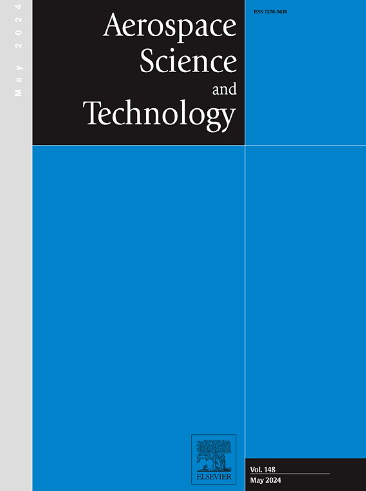Non-overshooting Fixed Time Control of Free-Flying Space Robotic Manipulators with output constraints: An Inverse Optimal Approach
IF 5
1区 工程技术
Q1 ENGINEERING, AEROSPACE
引用次数: 0
Abstract
Inverse Optimal Control (IOC) features addressing optimal control problem without the need to solve the complex Hamilton-Jacobi-Bellman (HJB) equation. Although IOC has been extensively studied over the recent years, the state of the art lacks the results of achieving a fixed time non-overshooting response with constrained outputs on IOC schemes. In this paper, an adaptive inverse optimal control scheme is proposed to address the tracking problem of free-flying space robotic manipulators subject to system uncertainties and unknown disturbances, which achieves the practical fixed time non-overshooting response with the constrained tracking errors. More precisely, a novel practical fixed time non-singular virtual controller is designed to define the desired dynamics of tracking errors, which features the non-singular derivative where is any positive integers defined by users. Then, an auxiliary variable is designed to work with the virtual controller to guarantee the absence of overshoot even the system is subject to uncertainties and disturbances. After that, a Fixed Time Disturbance Observer (FTDO) based inverse optimal control scheme is finally constructed to achieve a practical fixed time non-overshooting response with the satisfied output constraints. To the best of author's knowledge, this is the first work of simultaneously achieving non-overshooting response, practical fixed time stability, inverse optimality, and constrained output. The stability of the proposed controller is proven by Lyapunov theory, and the effectiveness is verified by numerical simulations.
求助全文
约1分钟内获得全文
求助全文
来源期刊

Aerospace Science and Technology
工程技术-工程:宇航
CiteScore
10.30
自引率
28.60%
发文量
654
审稿时长
54 days
期刊介绍:
Aerospace Science and Technology publishes articles of outstanding scientific quality. Each article is reviewed by two referees. The journal welcomes papers from a wide range of countries. This journal publishes original papers, review articles and short communications related to all fields of aerospace research, fundamental and applied, potential applications of which are clearly related to:
• The design and the manufacture of aircraft, helicopters, missiles, launchers and satellites
• The control of their environment
• The study of various systems they are involved in, as supports or as targets.
Authors are invited to submit papers on new advances in the following topics to aerospace applications:
• Fluid dynamics
• Energetics and propulsion
• Materials and structures
• Flight mechanics
• Navigation, guidance and control
• Acoustics
• Optics
• Electromagnetism and radar
• Signal and image processing
• Information processing
• Data fusion
• Decision aid
• Human behaviour
• Robotics and intelligent systems
• Complex system engineering.
Etc.
 求助内容:
求助内容: 应助结果提醒方式:
应助结果提醒方式:


